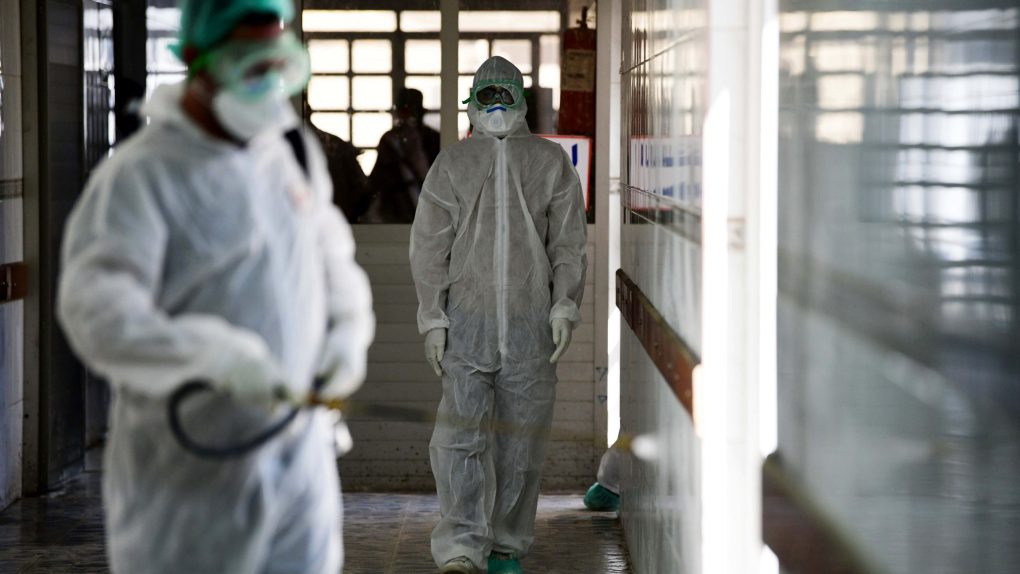- Researchers in China may have proven that COVID-19 reinfection isn’t possible in subjects who have recovered from the illness.
- The scientists analyzed monkeys infected with the same strain of coronavirus that’s wreaking havoc around the world and then attempted to reinfect them after recovery.
- The conclusion is that immunity against the SARS-CoV-2 virus can be acquired and once that happens, reinfection isn’t possible. However, the study needs further verification, and it fails to reveal how long immunity will last.
- Visit BGR’s homepage for more stories.
China gave the world nearly two months to prepare for the most serious threat of our generation, a novel coronavirus that can be deadly in the elderly and immunocompromised people. And yet the Western world including Europe and North America still failed to adequately prepare. Two months isn’t enough time to create a miracle cure or a vaccine, but it’s time that could have been used to bolster defenses — the purchase and manufacturing of essential medical supplies including disinfectants, protective gear, COVID-19 test kits, and ventilators. All hope isn’t lost, and time remains the most crucial resource we have to combat the novel coronavirus. By adhering to strict social distancing measures and practicing better-than-usual hygiene, every one of us buys the medical system the time it needs to treat patients without stressing about the imminent collapse of local hospitals. And that time buys us another thing that we desperately need: more research. The better we understand the SARS-CoV-2 virus, the better we’ll fight it and hopefully eradicate it.
Researchers have so far determined how the immune system responds to the virus, explaining why some people might recover by themselves. Others proved that the coronavirus is extraordinarily resilient and can survive on various surfaces for up to three days. Scientists also found that patients with mild symptoms are still highly contagious from the first cough or sneeze. Crucially, doctors were able to prove that COVID-19 isn’t a man-made disease, which is one of the popular conspiracy theories going around. Many others are studying novel therapies that have started showing promise, as well as vaccines. And there’s a new study that indicates that once infected, we might not be able to reacquire the virus because we develop immunity. However, the study needs a lot more time to be confirmed.
Published on bioRxiv a few days ago, the study comes from China, where researchers from several fields looked at the SARS-CoV-2 virus’s capacity to reinfect a host.
From the get-go, we’ll tell you that the Bio Archive explains the study is a preprint, and that it wasn’t certified by peer review. That’s one reason why more time is needed, as these findings have to be corroborated by other scientists around the world before they can be applied towards developing a COVID-19 vaccine.
The researchers inoculated four adult rhesus macaques monkeys with the SARS-CoV-2 and observed them while they developed COVID-19 symptoms as well as during recovery. They kept testing them to measure the amount of virus in their bodies. They euthanized one of the monkeys seven days after infection to measure viral replication inside various organs, including the nose, lung, gut, spinal cord, heart, and bladder, and to asses the effects on the virus on the body.
Viral loads peaked three days after infection and the SARS-CoV-2 was undetectable after 14 days. The researchers also found that the antibodies the immune system produced to fight the disease were significantly elevated at 14, 21, and 28 days after infections, compared to the 3-day peak.
After 28 days, two monkeys were reinfected with SARS-CoV-2, while one was used as the control. None of the monkeys developed symptoms after re-exposure to the virus, although the scientists observed “transient elevation” of body temperature in the reinfected subjects. Viral loads in nasopharyngeal and anal swabs tested negative after the re-exposure. One of the infected monkeys was euthanized five days after reinfection, but the researchers found no trace of viral replication or damage to the lungs, as was the case for the subject that was dissected seven days after the primary infection.
The scientists concluded that reinfection could not occur if the monkeys developed the neutralizing antibody at an early stage after the primary infection:
From our current longitudinal study of monkeys, the reinfection could not occur if the monkeys produced the neutralizing antibody at an early stage after the primary infection. Correspondingly, the convalescing patients won’t be contagious when they build up the enough specific antibody to develop immunity to SARS-CoV-2
Even if re-exposed to the virus, the monkeys would not be reinfected:
On the other hand, no viral replication in all primary tissues was detectable in re-exposed monkeys, implying that the coronavirus might not be hidden for a long time
The results are essential for the creation of a future vaccine. They can help doctors understand why some of the COVID-19 patients who have been discharged from hospitals retested positive, and improve diagnostic and therapy course:
In this study, our results indicated that the primary SARS-CoV-2 infection could protect from subsequent exposures, which have the reference of prognosis of the disease and vital implications for vaccine design. Importantly, the unsuccessful rechallenge in NHP models suggested that the re-positivity from discharged patients could not be due to reinfection
As you might have noticed, the researchers needed to wait 33 days from the moment the four subjects were infected to draw conclusions — and again, these conclusions need to be reviewed by others. Moreover, while it’s good news that the body can acquire immunity to the COVID-19 virus to prevent reinfection, it’s unclear how long that immunity will last, which a crucial answer we need to defeat this deadly virus.
So if you need further motivation to stay indoors even you’re going crazy, the increasing number of coronavirus studies should do the job. While you become a pro at social distancing, others are working around the world to beat this thing for good.








